University Report: Assessment Planning in Early Years Settings
VerifiedAdded on 2020/10/22
|5
|630
|102
Report
AI Summary
This report delves into the critical aspects of assessment planning within early years settings. It begins by emphasizing the importance of a child-centered model, highlighting the role of observations in understanding individual child development. The report further explores how these observations inform planning, including the use of baseline assessments to determine a child's learning needs and the evaluation of outcomes. The influence of theories of play and development, particularly Piaget's theory of cognitive development, on assessment practices is also analyzed. This report provides a comprehensive overview of the key components of effective assessment planning in early childhood education, emphasizing the interconnectedness of observation, planning, and theoretical frameworks.
1 out of 5
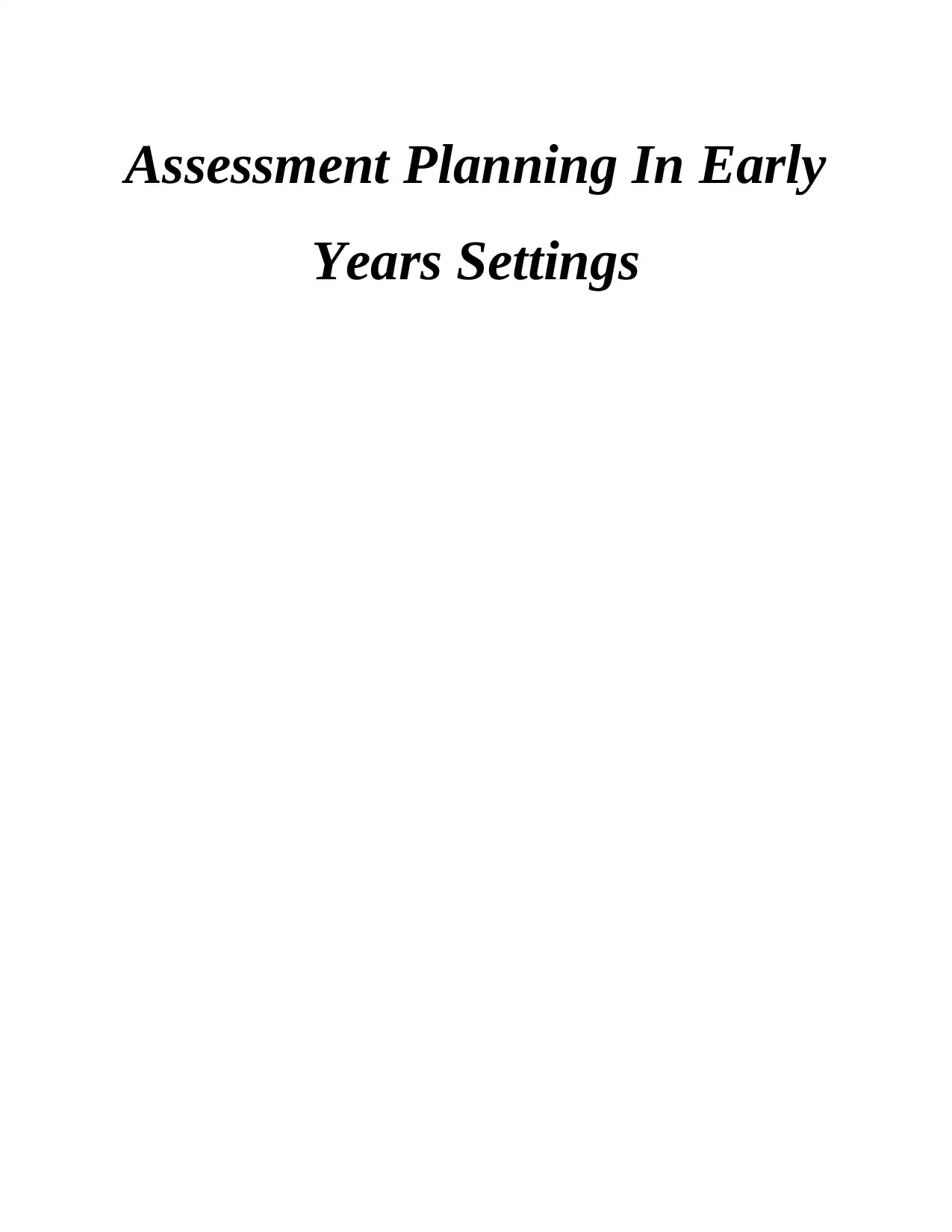
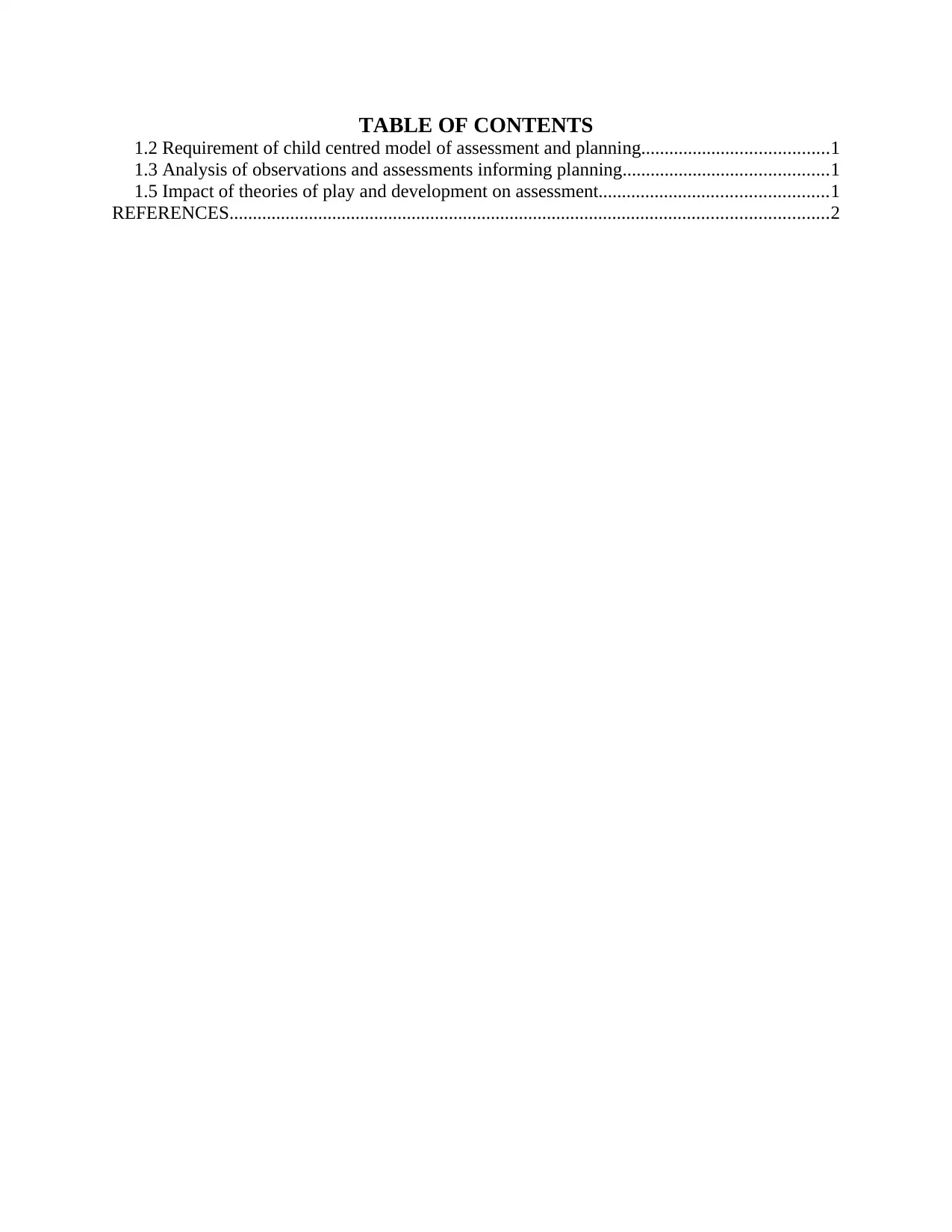
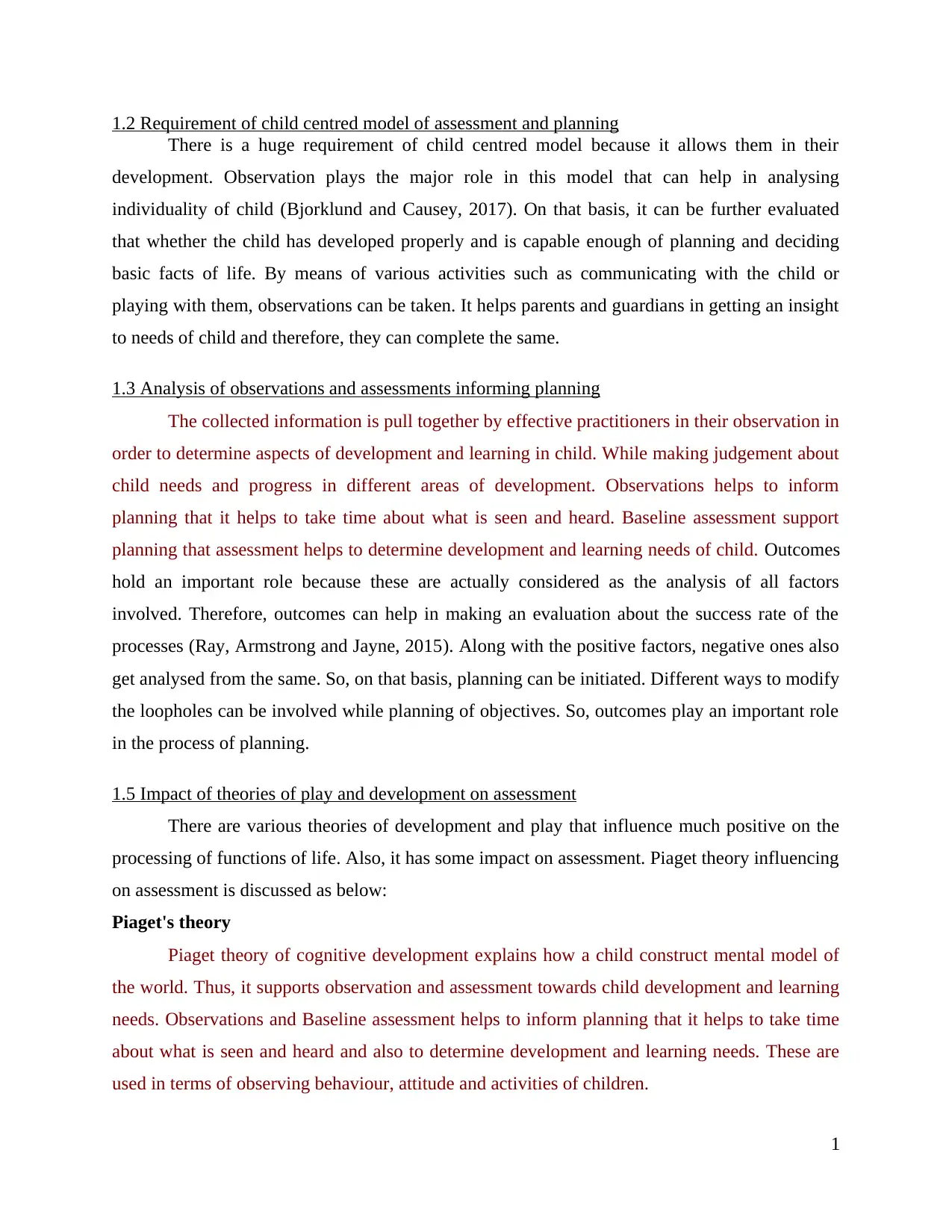

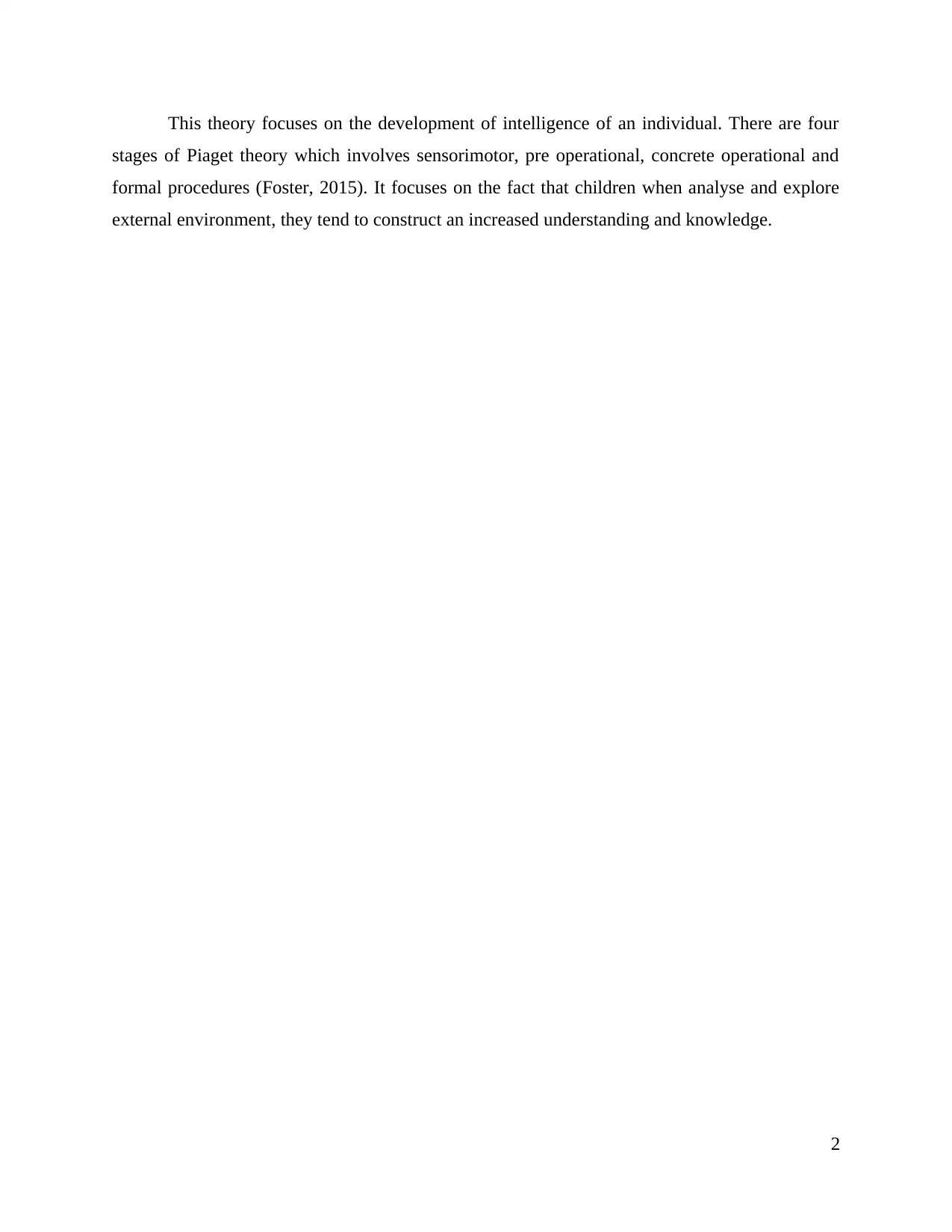
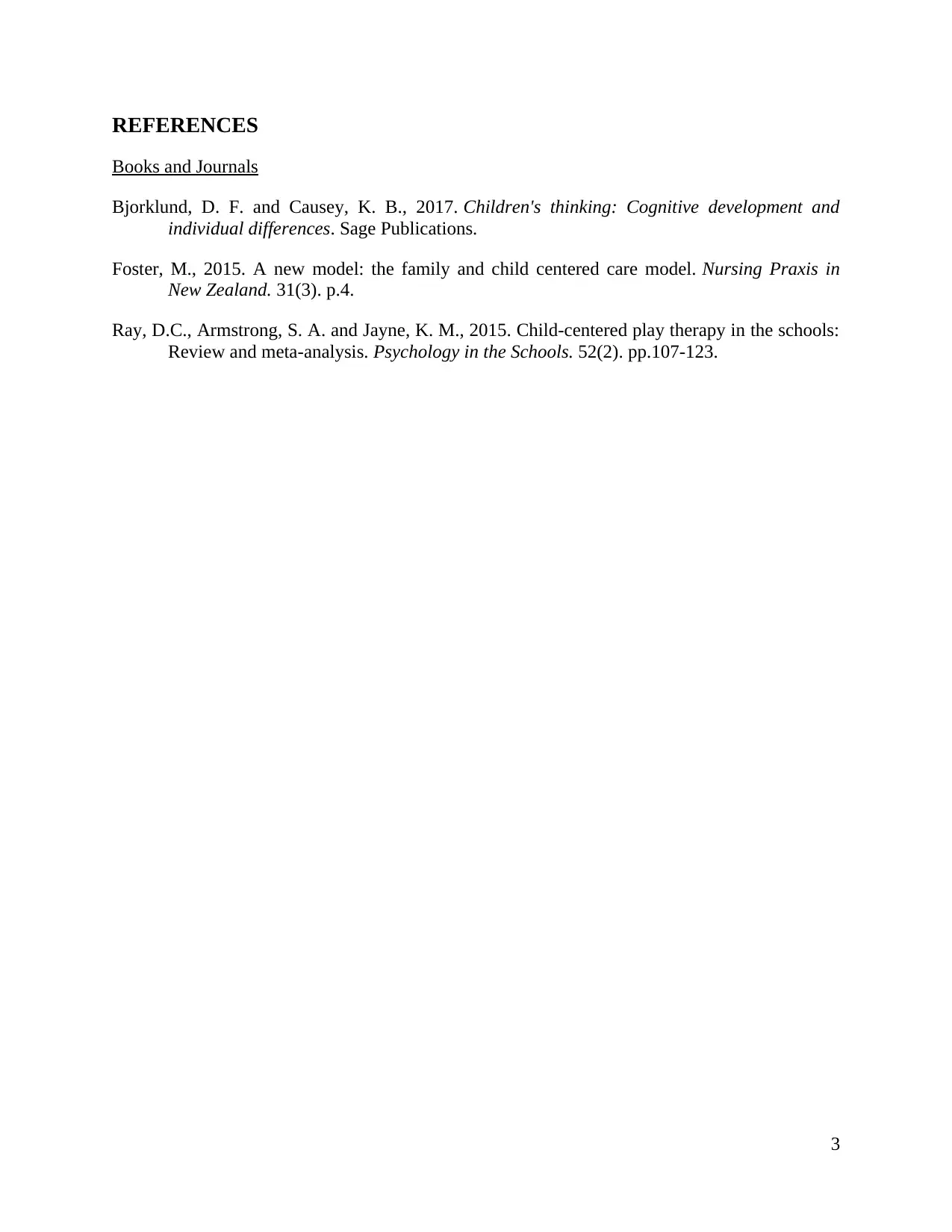






![[object Object]](/_next/static/media/star-bottom.7253800d.svg)